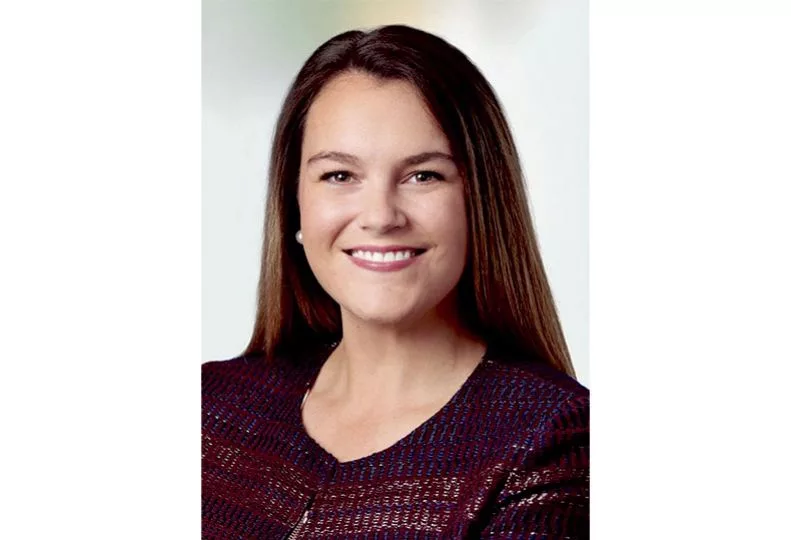
Home » Donor-advised funds are useful for strategic giving
Donor-advised funds are useful for strategic giving
Tax-advantaged tool assists in enhancing philanthropic impact

March 16, 2023
In the midst of tax season, charitably inclined people who itemize their deductions will, at some point, endure the hassle of checking folders, emails, and letters to track down a year’s worth of donation receipts to provide to their tax professionals.
On the other hand, individuals who use donor-advised funds may have avoided the rush to get organized because their giving has been streamlined and consolidated. Considering their numerous benefits, donor-advised funds are powerful vehicles for tax-efficient charitable giving that remain remarkably underused by the average donor. Some of the most significant benefits include:
•Efficient use and tax reporting.
•Ability to use appreciated securities for added tax savings.
•Strategic control over the timing of increasingly valuable deductions in an ever-changing tax landscape.
•A low-cost method of establishing what could be a multigenerational philanthropic legacy.
At its core, a donor-advised fund is a separate account an individual or couple can establish to help accomplish their charitable goals. The accounts must be opened with a 501(c)3 registered philanthropic administrator. The donors funding the account no longer own the assets once the transfer is complete, but they still have a role. They direct the dollars to charitable organizations they support via recommendations or grants the administrator then approves.
The funds in the account may be invested for future growth while awaiting distribution in a select offering from the administrator. If the account is large enough, donors may be able to engage an investment adviser to manage the funds on their behalf.
How can a donor-advised fund help you be more strategic in your giving? Funding a donor-advised fund is an irrevocable gift to a 501(c)3 organization, similar to making a donation to a local charity. Therefore, you are eligible to receive a tax deduction for the amount donated, which is subject to adjusted gross income limits.
As of 2023, your deduction for charitable contributions generally can’t be more than 60% of your AGI, but in some cases lower limits may apply. Contact your tax professional to determine the deductibility of your contributions based on the specifics of your tax situation and other factors.
Funding a donor-advised fund is different than a direct donation to a charity, because you are allowed to distribute the funds to your preferred charitable organizations over a number of years. As a result, when it comes time to track your donations for tax purposes, you only need to report your funding transactions, not each distribution. This is convenient for donors who prefer to make recurring gifts to charities.
Establishing, funding, and managing one of these accounts has never been easier. Many large custodians, including Charles Schwab and Fidelity, as well as regional organizations, such as Innovia Foundation and Idaho Community Foundation, allow you to initiate and complete the process entirely online with as little as $5,000 initial funding and no upfront fees. Many have no minimum balance requirements and the ongoing annual costs are very reasonable.
What can make the use of a donor-advised fund even more efficient from a tax perspective is your ability to time your deductions in the tax year when they provide the most benefit. This is often referred to as “bunching.”
For many Americans, itemizing isn’t necessary because the Tax Cuts and Jobs Act of 2017 nearly doubled the standard deduction and limited or eliminated many deductions. By “bunching” multiple years of annual donations into a single year through a donor-advised fund, you could have sufficient deductions to exceed the standard deduction threshold, which is $13,850 for single taxpayers and $27,700 for married couples filing jointly in 2023.
You may then distribute the funds to charities in subsequent years when using the standard deduction makes sense. This can be effective in years with significant tax events, such as the sale of a business or a large Roth individual retirement account conversion.
To enhance the tax efficiency of this strategy, consider funding your donor-advised fund with long-term appreciated securities from your portfolio. This will allow you to access those funds without incurring capital gains taxes you would have owed had you sold the shares and used the proceeds for your donations. This may be a tax-savvy strategy should the Washington State Supreme Court overturn the ruling that Washington State’s capital gains tax is unconstitutional.
Philanthropic legacy planning through donor-advised funds is particularly valuable to those who want a low-cost method of passing along their charitable ambitions to future generations. When establishing a donor-advised fund, you can name either a charitable organization that will receive the balance upon your passing, or another person who will take responsibility for directing the remaining charitable funds in the future. Because the funds were irrevocably earmarked for charitable purposes, and the tax deductions were received at the time of the funding, the successors are only allowed to direct the funds to 501(c)3 charitable organizations.
Unlike other philanthropic vehicles that provide similar benefits such as charitable trusts or family foundations, donor-advised funds have minimal setup and administrative costs, no annual tax-return filing, no need for costly legal documents, and currently have no minimum annual distribution requirements.
In addition to providing funding to the charities near and dear to your heart, with a little strategic planning, you can add layers of tax-efficiency that result in potentially significant tax savings that take your dollars even further, perhaps for generations to come.
Latest News Special Report Banking & Finance
Related Articles
Related Products

_web.webp?t=1769673727)
_web.webp?t=1769673728)
_web.webp?t=1769673735)
